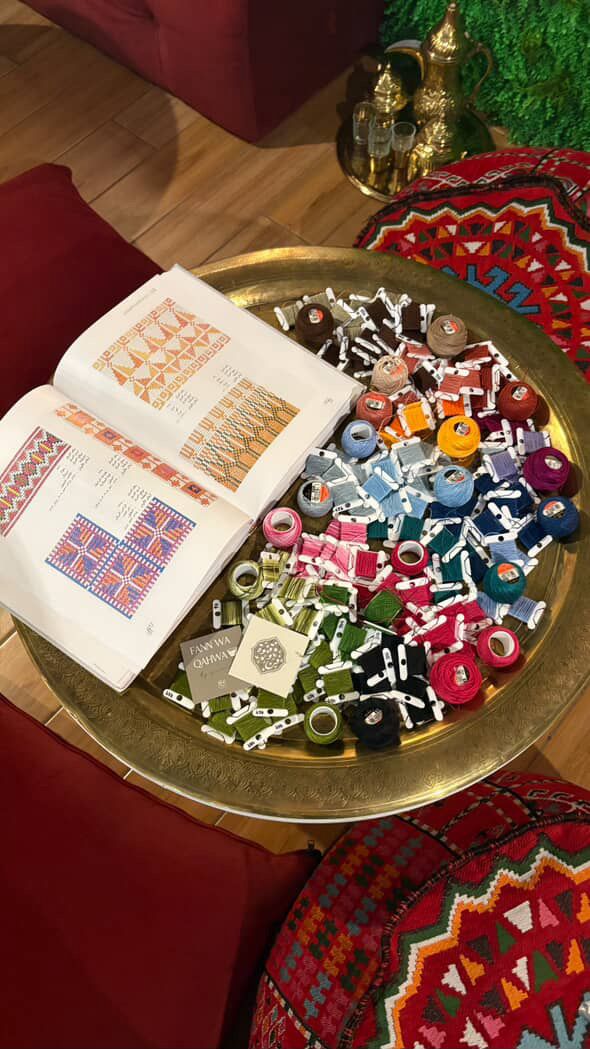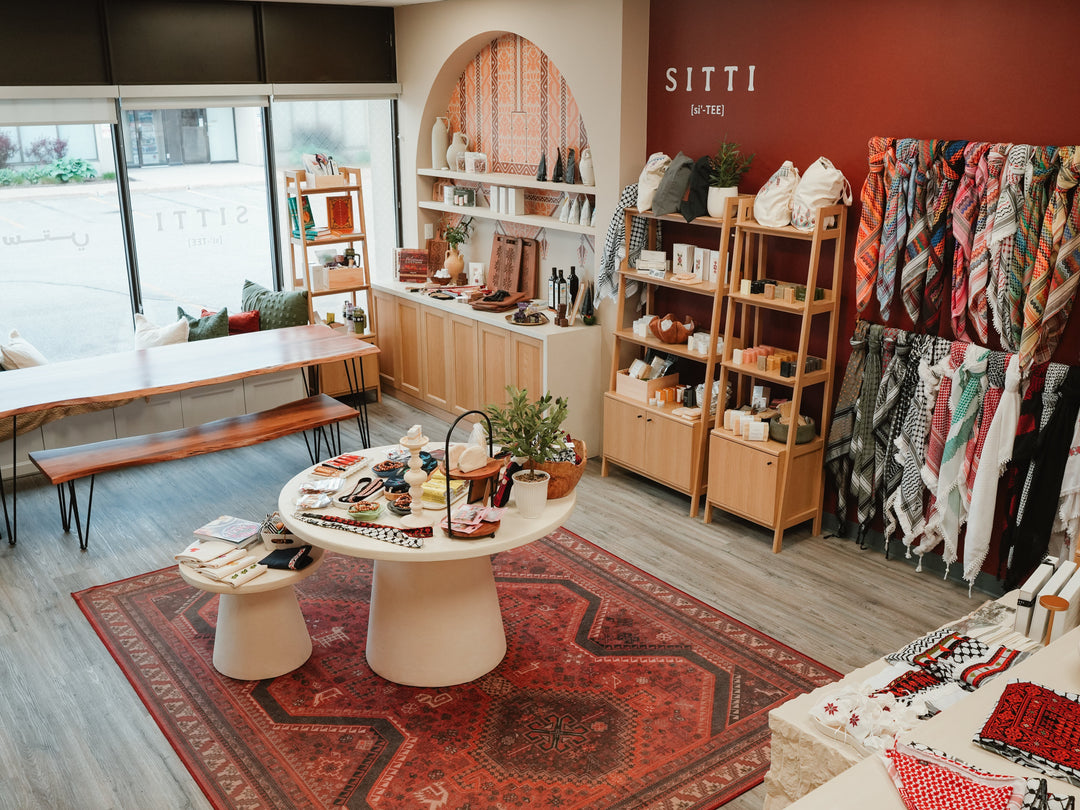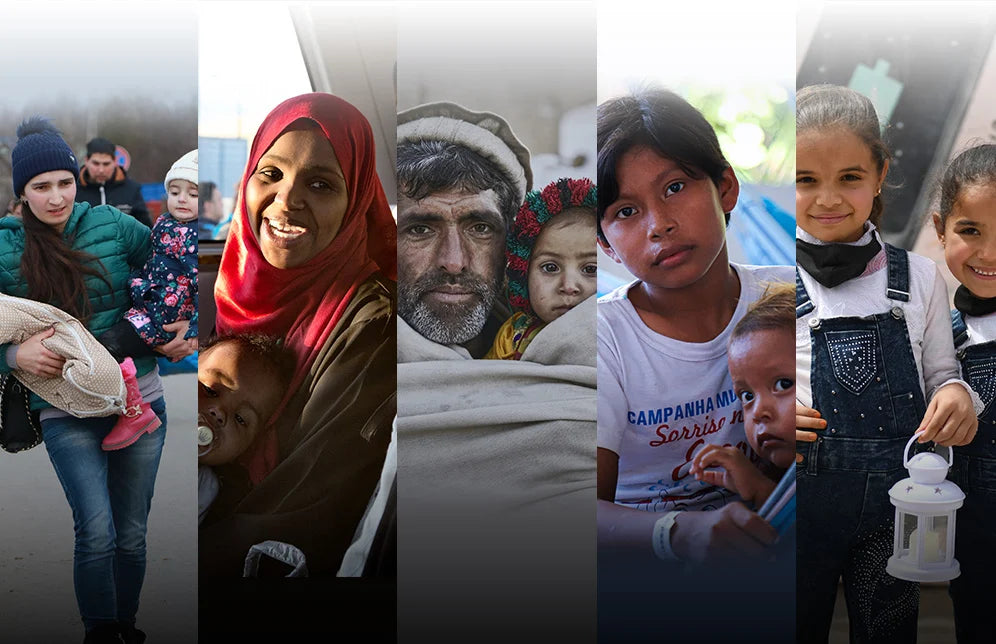How to stay warm in Jerash Camp
I remember the first time I was welcomed into a family's home in Jerash "Gaza" Refugee Camp. It was 2011. Winter in Jordan was still a few weeks away, but there was a chill in the air. I had been teaching yoga classes at the Camp's athletic center for the past month, and one of the women in my class invited me to her home one weekend for dinner and a sleepover.
Yes, a sleepover.
When I was a little girl, sleepovers were what you did with your best friend who you had known "forever." As an adult, the concept of a sleepover had been pretty removed from my life. In the US, when you're invited over for dinner, you usually excuse yourself and just drive home before it gets too late. That's it.
But not in Jordan, and certainly not in Jerash Camp. A dinner invitation is not just a one-time courtesy of dinner and dessert welcoming you to the neighborhood. It's more like a homecoming.
I boarded the bus with a colleague of mine who was a veteran of said sleepovers, and we took the hour-long ride from Amman to the Camp.
When you first enter Jerash Camp, it is fast and chaotic, and it's easy to miss details of what it is like to live there. The bus weaves through a constant flow of people, potholes, and maybe a donkey or two. Even though you're not driving, your eyes are glued on young passersby, worried that there might be a child darting into the road while flying a homemade kite, or chasing after a soccer ball.
We stepped off the bus, and sticking out like sore American thumbs, we walked through the main thoroughfare, hooked a right into a neighborhood of narrow dirt side streets, and about 5 minutes down the path we knocked on a metal gate. Out came several children ranging from ages five to fifteen. They ushered us into the house with the repeated "Ahlan, ahlan!" Immediately, we were directed to the sitting room, a.k.a. the majlis. It was a minimalist space. The youngest daughter had just finished using a small hand vacuum to clean the carpet, and most of the family's personal possessions had been neatly tucked behind cushions lining the perimeter of the room. A thin, golden tapestry was draped across the ceiling.
After consuming several cups of tea and wrapping up an intense coloring book session, we were brought to the next room. As the mother and eldest daughter unwrapped waxed paper bags of Bitani's* famed falafel from their steaming cocoons, I glanced around. Several pairs of eyes were focused on the small box television set that was perched on top of a particle board cabinet. One door to the cabinet was askew, while the other one was missing altogether. The faux wood finish had been peeled off one side. An American action film was playing on the television with Arabic subtitles.
This was a room where few guests were invited. I looked up and saw a maze of wires strung across the ceiling, connecting various appliances to the outside world through the gaps between the wall and the corrugated zinc roof. The sun had gone down, and you could feel a draft creeping in. I anticipated it getting colder at night, and did my best to dress appropriately. With two pairs of pants and a combined stack of t-shirts and sweaters underneath my jacket, the chill still managed to hit bone. I noticed a plastic, orange tarp billowing behind us, and was afraid to see what (if anything) was on the other side.
Around 7:30 pm, a burly man with a graying five o'clock shadow walked in the door. The youngest daughter ran up to give him a hug before he could take off his coat. After a full day spent on his knees laying tile, their father rolled up his sleeves and started a fire in the sheet metal psuedo-stove in the center of the room. Smoke rose through a pipe that exited the house between the wall and the roof. As he continued to labor over the fire with his calloused hands, we all huddle together. Some of the kids started telling jokes, and suddenly feeling brave, I scrambled for my rudimentary Arabic to contribute to the night's laughter. Core temperatures began to rise and the fire slowly died. We went to bed warm and pleasantly exhausted.
In the morning, when there was need for additional hands in the kitchen I went back to help, and discovered that the tarp was a stand-in for the house's rear wall that had crumbled to a small concrete stump over time.** This family would be more-or-less sleeping outside for the remaining winter months.
Later that afternoon, with the smell of smoke still clinging to my jacket, I returned to my apartment in Amman with its sturdy roof, four walls and windows sealed off from the elements. I switched on my gas heater that just required a quick flick of a lighter.
...And I thought of how I had not welcomed anybody into my own home yet. Since moving to Jordan, I hadn't invited my neighbors over for a meal, much less a cup of tea. I considered myself "too busy." But what I was really feeling was an intense vulnerability. Fear of judgment, for whatever reason that could no longer be justified after that night in the Camp.
It's now 2016. This past week was my first Thanksgiving holiday in the US in five years. While I've been spending time with family, I've also had the chance to catch up with old friends. One friend of mine from college asked about Jordan, and my mind immediately went back to that first night in the Camp. I described the extraordinary hospitality and kindness of the community, and how humbling it was to receive that kindness in the face of daily struggle and repeated oppression.
I wasn't expecting him to fully comprehend what I was feeling in that moment, but he replied with something that stuck...He said that strength and radiance often come from vulnerability.
Many families in Jerash Camp (if not all) are vulnerable, whether it's the physical vulnerability from a crumbling home and no heat, or the spiritual vulnerability of an unfulfilled promise.
So, when that family had their stove burning, and the father laboriously stoked its flames with us gathered together around it, holding our hands close, it wasn't the roaring fire that kept me warm that night. It was the strength and radiance of this family who had taken me in and welcomed me as one of their own.
This is the same strength that keeps us going at Sitti Soap. Every morning we open our doors, and we know the challenges that lie ahead of us. We are a small business with a small staff, and located in the poorest Palestinian refugee camp in Jordan.*** But we also embrace the opportunity to push past our vulnerabilities in order to create a more beautiful life. We create a handmade, all-natural and nourishing product, job opportunities, and educational programming for the community that has welcomed us and shared one of their most valuable possessions: their traditions.
- J
*A popular falafel vendor in Jerash Camp.
**Between 1968 and 1971, 2,000 shelters were built with support from emergency donations. Over the years, many of the camp’s inhabitants have replaced the prefabs with more durable concrete shelters. Many roofs are still made of corrugated zinc and asbestos sheets, which can cause diseases such as cancer. [Source]
***According to a FaFo report published in 2013, Jerash camp is the poorest among the ten official Palestine refugee camps in Jordan, with 52.7 percent of Palestine refugees having an annual income below the national poverty line of JD 814.








Leave a comment